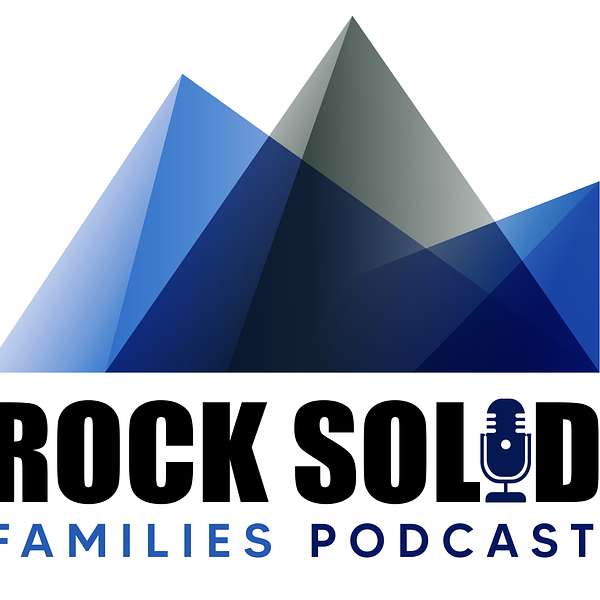
Rock Solid Families
Rock Solid Families
Can You and Your Spouse Have Difficult Conversations? Ep 316
Can You and Your Spouse Have Difficult Conversations?
•The discussion centers around the difficulties couples face when having hard conversations, especially those filled with tension.
Importance of Safe Spaces
•Creating Emotional Safety: The need for a safe emotional environment within a relationship, where both partners feel secure enough to share their feelings without fear of being attacked or dismissed.
•Common Issues: Reasons why conversations might not feel safe, including past trauma, fears of anger, and emotional unavailability.
•Distinction Between Peacekeepers and Peacemakers: Linda emphasizes the difference; peacekeepers avoid conflict while peacemakers address issues with an aim to enhance the relationship.
Consequences of Avoiding Difficult Conversations
•Building Resentment: Avoidance leads to resentment, increasing emotional distance and eroding intimacy over time.
•Trust Issues: Unresolved issues can damage trust, leading partners to feel unsupported and potentially seeking emotional or physical connection outside the marriage.
•General Relationship Decline: A lack of open communication can lead to a “rotting” relationship.
Strategies for Addressing Difficult Conversations
1. Grounding in Shared Beliefs
•Common Purpose: Establish a shared belief in the importance of the marriage and family, utilizing a spiritual or religious framework as a guiding principle for conflict resolution.
•Prayer and Humility: Starting discussions with prayer and a humble approach can help set a positive tone and prepare both partners to engage constructively.
2. Active Listening
•Listening vs. Defensiveness: The importance of active listening, which requires closing one’s mouth and truly focusing on the partner’s words, rather than preparing a rebuttal.
•Clarifying Understanding: After listening, repeat back what has been said to ensure mutual understanding, which helps diffuse defensiveness and promotes a healthy dialogue.
3. Speak the Truth in Love
•Honesty with Gentleness: When expressing feelings or grievances, it’s crucial to be truthful yet gentle, avoiding harsh words or accusations.
•Avoiding Extremes: Steer clear of exaggerated terms like “always” or “never,” which can trigger defensiveness and hinder productive communication.
4. Forgiveness and Reconciliation
•Understanding Hurt: Addressing past wounds and recognizing triggers during conversations is vital for healing.
•The Power of Forgiveness: Forgiveness is imperative for moving forward in a relationship, as holding onto grudges can prevent healing and reconciliation.
5. Focus on Unity
•Shared Goals: Instead of hyper-focusing on problems, couples should align their efforts towards common goals that foster unity in the marriage.
•Prioritizing the Relationship: Emphasizing the health of the marriage and the family unit over individual grievances can help reduce conflict and build a stronger partnership.
Recognizing the Need for Help
•Seeking External Support: Seek counseling or mediation when conflict becomes too overwhelming or unmanageable, especially in cases of emotional instability or past trauma.
•Mutual Commitment to Improvement: Both partners must be willing to engage in the process of resolving conflicts for it to be effective.
https://rocksolidfamilies.org
#Rocksolidfamilies, #familytherapy, #marriagecounseling, #parenting, #faithbasedcounseling, #counseling, #Strongdads, #coaching, #lifecoach, #lifecoaching, #marriagecoaching, #marriageandfamily, #control, #security, #respect, #affection, #love, #purpose, #faith, #affairs, #infidelity